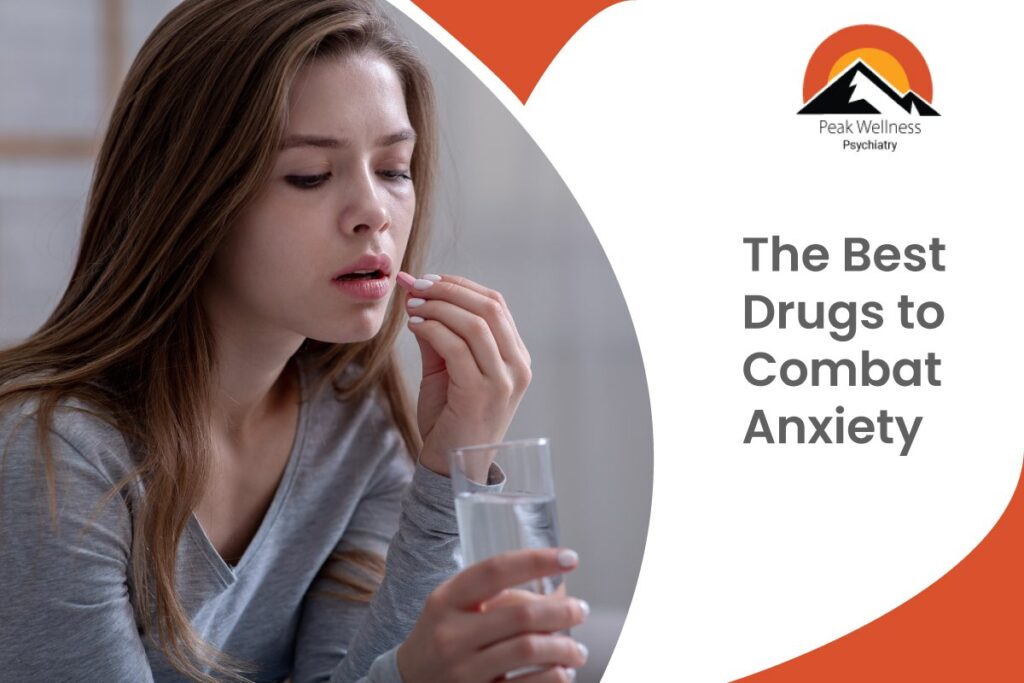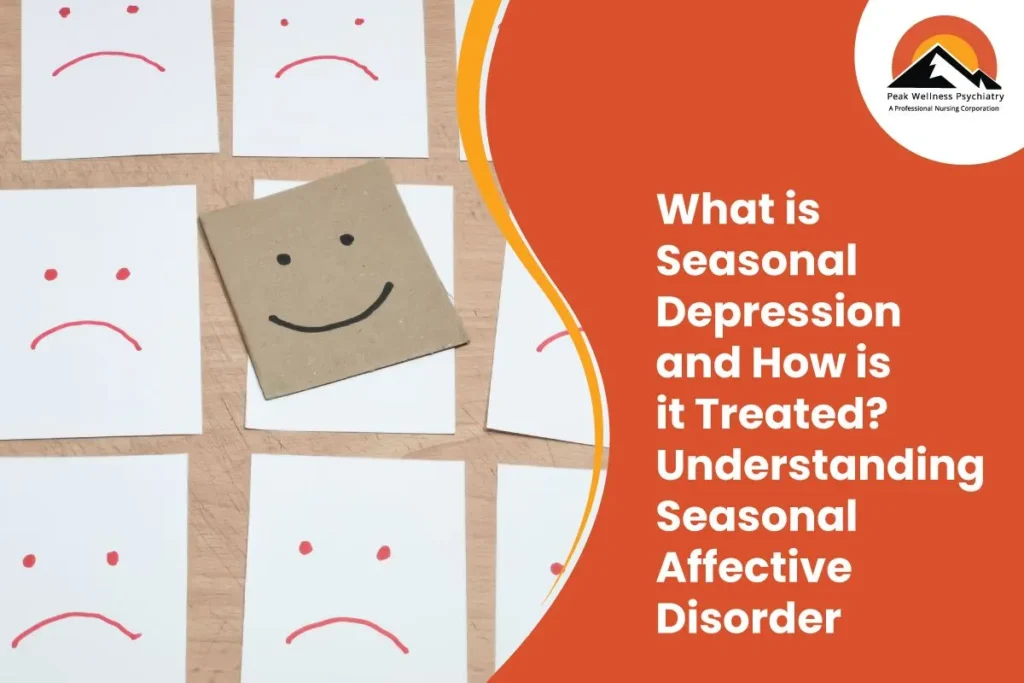What is Anxiety?
Anxiety is something we all experience from time to time. Being nervous about social events, financial worries, or job interviews can make us anxious. Feelings like these may be normal or even helpful. They may give us a boost of energy or help us focus. Yet, anxiety disorders can make these situations overwhelming for some people.
Here, we explore some of the best pharmacotherapy options for combating anxiety.
Anxiety Disorders
There is more to anxiety disorders than temporary worry or fear. When someone has an anxiety disorder, the anxiety doesn’t go away and can worsen over time. As a result, the symptoms can interfere with day-to-day activities.
Types of Anxiety Disorders
Think of anxiety disorders as a tree with many branches. They have other types, encompassing different sets of symptoms. Here are a few to name:
- Generalized anxiety disorder (GAD). People with GAD worry about everyday health, money, work, and family issues. But, their worries are overwhelming and can occur often.
- Panic disorder. Panic attacks are a common symptom of panic disorder. In these situations, intense fear often occurs even though no danger exists. In severe cases, the attacks may last several minutes or even longer.
- Phobias. An individual with a phobia experiences a deep fear of something that poses little or no real threat. A person’s fear may be spiders, flying, crowded places, or social interactions.
What Causes Anxiety Disorders?
Anxiety disorders are like other mental illnesses. Neither are they the result of weakness on the part of the individual, character flaws, or concerns about upbringing. Yet, researchers do not know exactly what causes anxiety disorders. Factors suspected to play a role include:
- Neurotransmitters. The three major neurotransmitters associated with anxiety on the bases of animal studies and responses to drug treatment are norepinephrine (NE), serotonin, and r-aminobutyric acid (GABA).
- Norepinephrine. This neurotransmitter may play a role in anxiety disorders due to a poorly regulated noradrenergic system with occasional bursts of activity. In the noradrenergic system, the cell bodies of norepinephrine receptors are concentrated in the locus ceruleus. In experiments, stimulation of the locus ceruleus elicited a fear response, while ablation of the same area inhibited or completely blocked fear responses.
- Serotonin. As serotonin receptor types have been identified, the role of serotonin in anxiety disorders has been explored. Initial discoveries were made with serotonergic antidepressants that treat anxiety disorders – such as clomipramine for obsessive compulsive disorder. Serotonin 5-HT1A receptor agonist Buspirone is also highly effective, suggesting that serotonin is associated with anxiety.
- GABA. There is no doubt that GABA plays a significant role in anxiety disorders as evidenced by the fact that benzodiazepines, which enhance GABA’s activity at its receptor, are effective in treating some anxiety disorders.
Also, read on Biochemical Aspects of Anxiety
- Influences of the environment. The environmentally-influenced-set-point hypothesis assumes that environmental experiences produce enduring effects on an individual’s set points for anxiety and depression. Research has shown that severe environmental stressors, like childhood sexual abuse, natural disasters, and combat exposure, have lasting effects on anxiety and depression symptoms.
- Genetics. There is strong evidence that at least some genetic component contributes to anxiety disorders. It has been recognized that heredity plays a role in the development of anxiety disorders. Other anxiety disorders also indicate a higher frequency of the illness in first-degree relatives of affected patients than in relatives of non affected persons. Data from twin registries also support the hypothesis that anxiety disorders are at least partially genetically determined.
How Does It Feel To Have Anxiety?
Anxiety disorders can present with a variety of symptoms. Even so, they all share a combination of the following:
- Anxiety-provoking thoughts or beliefs. As a result, you feel restless and tense, interfering with your day-to-day activities. Over time, they can get worse and do not go away.
- Accompanied by pounding heartbeats, unexplained pains or aches, dizziness, or shortness of breath.
- A change in behavior, such as avoiding activities you used to do every day.
- Whether it’s social interactions or decision-making, anxiety is linked to racing thoughts, ruminating, and overthinking possibilities.
- Struggle with insomnia or sleeplessness.
- Self-harming behaviors like hair pulling or cutting as a response to anxiety.
- Physiological symptoms of anxiety include stomachaches and irritable bowel syndrome.
Anxiety Case Study
A better understanding of what anxiety feels like is essential for raising awareness. The case involves a 21-year-old male, a university graduate, who visited the pharmacy and asked to speak to the pharmacist privately. He was concerned about recent heart palpitations. Additionally, he appears to be sweating and on edge. He stated during the assessment that he started a new job, and whenever he felt anxious, palpitations kicked in. He also described his symptoms as being “on edge” most days of the week and said he did not want to socialize with his coworkers. Also, his sleep was becoming affected by his symptoms, and he didn’t know what to do. He also experienced occasional chest pains.
In this case, the patient presented moderate anxiety symptoms, given his desire to avoid socializing, and had a degree of functional impairment. There is, however, the possibility that cardiac symptoms could be caused by another disorder.
Upon further taking his history, he denies having any health issues. Still, a further evaluation, such as an electrocardiogram, is necessary to eliminate cardiovascular problems in this case. The pharmacist recommended getting an assessment from a general practitioner since he was manifesting physical symptoms of anxiety. The patient agreed and was referred to a general practitioner for proper evaluation and treatment. Where he has seen improvements in anxiousness due to lifestyle changes and medication.
Drugs Available for Treating Anxiety
Even though medication does not cure anxiety, it can help you cope with anxiety symptoms. Working with your healthcare provider will enable you to identify the correct medicine. A trial-and-error approach may be necessary when choosing the right drug. For this reason, finding the proper medication may take a few tries.
Here are some drugs available for treating anxiety:
1. SSRIs (Selective Serotonin Reuptake Inhibitors)
SSRIs are antidepressants that also treat anxiety. It affects serotonin, an important neurotransmitter linked to happiness, well-being, thinking, memory, sleep, digestion, and circulation. The high tolerability of SSRIs with fewer side effects makes them an excellent first-line anti-anxiety medication.
2. SNRIS (Serotonin-Norepinephrine Reuptake Inhibitors)
Another class of anti-anxiety drugs is SNRIs. The action of SNRIs is to prevent the brain cells from rapidly absorbing serotonin and norepinephrine. SNRIs stabilize these neurotransmitters, which help improve mood, reduce anxiety, and relieve panic.
Benzodiazepines belong to the class of anxiolytics. These drugs increase the activity of the neurotransmitter GABA in the brain, which helps you feel calm. Additionally, their effect produces drowsiness, making sleeping easier through the night.
Benzodiazepines are fast-acting but short-lived. Therefore, anxiety relief often lasts a few hours after taking the drug.
4. Tricyclic Antidepressants (TCAS)
Tricyclic antidepressants prevent the reabsorption of serotonin and norepinephrine neurotransmitters. Both are essential for normal body function. TCAs were once considered first-line anti-anxiety drugs.
Beta-blockers help minimize the effects of your body’s fight-or-flight response on your heart.
Beta-blockers effects can help manage some of the physical symptoms of anxiety. Still, they will not address the underlying psychological causes.
The Best Drug to Combat Anxiety
Anxiety drugs are chosen based on the symptoms presented and the severity of the disorder. In most cases, it involves balancing between benefits and risks of a specific drug.
Many studies show that SSRIs are the most effective in treating anxiety disorders. SSRIs’ popularity and widespread use can be attributed to their relatively few side effects compared to TCAs.
The effects of SSRIs are primarily on serotonin. Consequently, fewer patients experience side effects such as sedation, constipation, urinary retention, and cognitive impairment.
SSRI medications are often prescribed as the first-line treatment in treating anxiety disorders because of their increased tolerability. As SSRIs are specific for serotonin, they are safe, but there are also risks.
Other Treatment Options Available for Anxiety Disorders
Many people find medications for anxiety to be safe and effective. In some cases, people prefer to avoid medication; in others, they combine medicine with other treatments.
You can try the following holistic treatments for anxiety:
- Psychotherapy. The first-line treatment for anxiety is cognitive behavioral therapy. Patients with anxiety have reported improved quality of life after undergoing CBT.
- Support groups. You can enjoy connecting with others with the same experiences.
- Lifestyle modifications. Exercise, sleep, and avoiding alcohol and illicit drugs can reduce anxiety.
- Stress management techniques. The use of progressive muscle relaxation and breathing techniques can help reduce anxiety.
Also, read – The Benefits of Holistic Treatments to Treat the Root Cause of Anxiety.
Personalized Anxiety Treatment Is What You Deserve
Treatment for anxiety is available. Should you decide on an online psychiatrist NP to help you, look no further! Peak Wellness Psychiatry offers telemedicine to all California, Arizona, and Washington patients. We also accept a variety of insurances.
As an integrative and holistic mental health practice, Peak Wellness Psychiatry provides Holistic Psychiatric NP Care that combines medication and lifestyle modifications to meet individual mental health needs.
Our goal is to help every patient thrive by tailoring a comprehensive plan that fits their unique needs. To help with Psychiatric consultation, diagnosis, and treatment options for anxiety, we also take into account a lifestyle, body, and mind approach that encompasses your personal growth.
As well as prescribing online medications for anxiety, we can help treat various mental health conditions. Our healing methods are tailored to your unique situation and preferences!
To learn more, call (888) 909-8676 or visit the link. Telepsychiatry appointments are booked through online self-scheduling and we offer appointments within 4 days! To learn more, call (888) 909-8676 or visit the link. Telepsychiatry appointments are booked through online self-scheduling and we offer appointments within 4 days!




